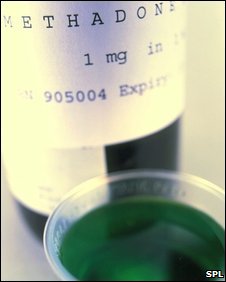How Long Will I Need Methadone Treatment?
For many people, the severity of an opiate addiction requires a specialized form of medication treatment in order to maintain abstinence for any length of time. Methadone treatment is one of a few medication therapies used in opiate addiction treatment. Though methadone exists as a standard form of treatment, the length of time a person stays in methadone treatment will vary from person to person.
Ultimately, the ability to manage daily life without the need for drugs is the overall goal of methadone treatment. As each person’s situation brings its own set of circumstances, both short- and long-term treatments are available. Considering how long-term opiate use damages brain and body processes, anyone considering methadone may want to keep a few things in mind when deciding between short- versus long-term treatment.
Factors Affecting Treatment Success
By the time someone enters opiate addiction treatment, his or her brain functions have been significantly compromised by repeated opiate use. This means ongoing drug cravings and withdrawal effects will persist until brain chemical processes return to normal. Since methadone is itself an opiate-type medication, it can be used to help wean a person wean of opiate drugs by supporting compromised brain functions along the way.

The amount of time an individual will need methadone for varies case by case.
According to the University of Hawaii, certain factors increase a person’s odds of a successful recovery process. These factors include:
- Having a stable support network of friends and family
- Developing healthy relationships with non-drug users
- Being motivated to get well
- Developing new coping strategies for dealing with everyday stressors and challenges
Determining how long methadone treatment will take may not be possible at the outset of treatment since each person reacts differently to the drug. On average, methadone treatment duration can last anywhere from six months to two years or more depending on a person’s treatment needs, according to the U.S. National Library of Medicine.
Short vs. Long-Term Treatment
Within the drug treatment field, two schools of thought – short-term vs long-term – exist as to how long methadone treatment should run, according to Canada’s Center for Addiction and Mental Health. The short-term treatment approach views emotional difficulties and unhealthy coping behaviors as the driving force behind opiate addiction. In this case, once a person develops emotional stability and a healthy lifestyle, methadone treatments are no longer needed.
The long-term treatment approach views opiate addiction as a disease, much like diabetes is a disease. In this case, methadone’s role in treating opiate addiction becomes more so like insulin’s role in helping a person manage diabetes symptoms.
Considerations
While short-term methadone maintenance treatment requires a considerably shorter treatment period, an unsuccessful treatment can place a person at considerable risk of resuming old drug use behaviors. According to the U.S. National Library of Medicine, people receiving methadone maintenance treatment for a minimum of 12 months have the best chance at a successful treatment outcome.
Treatment times shorter than 12 months leave recovering addicts highly susceptible to relapse episodes. The risk of overdosing increases considerably when relapse occurs after long periods of no drug use and can easily result in death.
Ultimately, anyone considering methadone maintenance treatment may want to focus more so on having a successful recovery as treatment duration times are hard to predict at the outset.